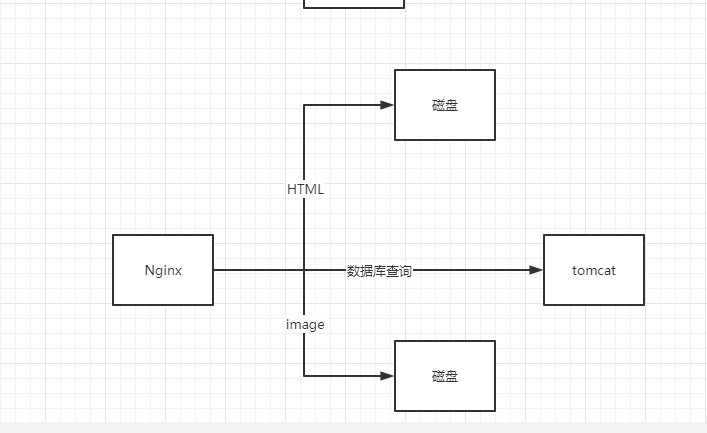常用字符串处理工具封装
这些年C++下的开发习惯了大而全的库,突然有一天,不能使用这些库了,才发现缺少一套自己常用的库
后续除了ROS以外,还会更新一些没有额外依赖的常用工具库
基于std::string的字符串处理
本人是Qt的忠实fans,接口的名称和风格参考Qt
使用.hpp文件,不需要加入项目中,只要#include文件即可使用
StringUtil.hpp
#ifndef STRING_UTIL_H
#define STRING_UTIL_H
#include <string>
#include <string.h>
#include <algorithm>
#include <vector>
#include <memory>
namespace sh
{
/**
* @brief: 是否区分大小写
* @author: sherlock_lht
*/
enum CaseSensitivity
{
CaseInsensitive = 0,//不区分大小写
CaseSensitive //区分大小写
};
/**
* @brief: 分割字符串的行为定义
* @author: sherlock_lht
*/
enum SplitBehavior
{
KeepEmptyParts = 0, //如果字段是空的,也放在结果里
SkipEmptyParts //如果字段是空的,不放在结果里
};
/**
* 常用字符串工具,基于std::string,用于ASCII字符串处理
* 接口参考Qt的接口风格
* 使用时直接#include该文件即可,不需要加入项目中
*
* @author: sherlock_lht
*/
class StringUtil
{
public:
/**
* format方法来自github,支持C语言风格的字符串格式化
*/
template<typename ... Args>
static std::string format(const char *format, Args ... args)
{
auto size_buf = std::snprintf(nullptr, 0, format, args ...) + 1;
std::unique_ptr<char[]> buf(new(std::nothrow) char[size_buf]);
if (!buf)
return std::string("");
std::snprintf(buf.get(), size_buf, format, args ...);
return std::string(buf.get(), buf.get() + size_buf - 1);
}
/**
* Returns a lowercase copy of the string.
*/
static std::string toLower(const std::string &origin_str)
{
std::string result = origin_str;
std::transform(result.begin(), result.end(), result.begin(), ::tolower);
return result;
}
/**
* Returns an uppercase copy of the string.
*/
static std::string toUpper(const std::string &origin_str)
{
std::string result = origin_str;
std::transform(result.begin(), result.end(), result.begin(), ::toupper);
return result;
}
/**
* Returns true if the string starts with s; otherwise returns false.
* If cs is sh::CaseSensitive (default), the search is case sensitive;
* otherwise the search is case insensitive.
*/
static bool startsWith(const std::string &origin_str,
const std::string &substr,
CaseSensitivity cs = CaseSensitivity::CaseSensitive)
{
if (CaseSensitivity::CaseSensitive == cs)
{
return origin_str.find(substr) == 0;
}
return toLower(origin_str).find(toLower(substr)) == 0;
}
/**
* Returns true if the string ends with s; otherwise returns false.
* If cs is sh::CaseSensitive (default), the search is case sensitive;
* otherwise the search is case insensitive.
*/
static bool endsWith(const std::string &origin_str,
const std::string &substr,
CaseSensitivity cs = CaseSensitivity::CaseSensitive)
{
std::size_t last_index = origin_str.length() - substr.length();
if (CaseSensitivity::CaseSensitive == cs)
{
return origin_str.rfind(substr) == last_index;
}
return toLower(origin_str).rfind(toLower(substr)) == last_index;
}
/**
* Compares s1 with s2 and returns an integer less than, equal to,
* or greater than zero if s1 is less than, equal to, or greater than s2.
*
* If cs is sh::CaseSensitive, the comparison is case sensitive; otherwise the comparison is case insensitive.
*/
static int compare(const std::string &s1, const std::string &s2,
CaseSensitivity cs = CaseSensitivity::CaseSensitive)
{
if (CaseSensitivity::CaseSensitive == cs)
{
return strcmp(s1.c_str(), s2.c_str());
}
return strcmp(toLower(s1).c_str(), toLower(s2).c_str());
}
/**
* Returns true if this string contains an occurrence of the string str;
* otherwise returns false.
*
* If cs is sh::CaseSensitive (default), the search is case sensitive;
* otherwise the search is case insensitive.
*/
static bool contains(const std::string &str, const std::string &substr,
CaseSensitivity cs = CaseSensitivity::CaseSensitive)
{
if (CaseSensitivity::CaseSensitive == cs)
{
return str.find(substr) != std::string::npos;
}
return toLower(substr).find(toLower(substr)) != std::string::npos;
}
/**
* Splits the string into substrings wherever sep occurs, and returns the list of those strings.
* If sep does not match anywhere in the string, split() returns a single-element list containing this string.
* cs specifies whether sep should be matched case sensitively or case insensitively.
* If behavior is sh::SkipEmptyParts, empty entries don't appear in the result.
* By default, empty entries are kept.
*
*/
static std::vector<std::string> split(const std::string &str, const std::string &sep,
SplitBehavior behavior = SplitBehavior::KeepEmptyParts,
CaseSensitivity cs = CaseSensitivity::CaseSensitive)
{
std::string check_str = CaseSensitivity::CaseSensitive == cs ? str : toLower(str);
std::string check_sep = CaseSensitivity::CaseSensitive == cs ? sep : toLower(sep);
size_t length = check_sep.length();
std::size_t index = check_str.find(check_sep);
std::size_t start_index = 0;
std::vector<std::string> result;
while (true)
{
std::string element = str.substr(start_index, index - start_index);
if (!element.empty() || (element.empty() && SplitBehavior::KeepEmptyParts == behavior))
{
result.emplace_back(element);
}
if (std::string::npos == index)
{
break;
}
start_index = index + length;
index = check_str.find(check_sep, start_index);
}
return result;
}
/**
* Returns a string that has token removed from the start.
*/
static std::string trimLeft(const std::string &str, const std::string &token = " ")
{
std::string result = str;
result.erase(0, result.find_first_not_of(token));
return result;
}
/**
* Returns a string that has token removed from the end.
*/
static std::string trimRight(const std::string &str, const std::string &token = " ")
{
std::string result = str;
result.erase(result.find_last_not_of(token) + 1);
return result;
}
/**
* Returns a string that has token removed from the start and end.
*/
static std::string trim(const std::string &str, const std::string &token = " ")
{
std::string result = str;
result.erase(0, result.find_first_not_of(token));
result.erase(result.find_last_not_of(token) + 1);
return result;
}
/**
* Returns a string that has whitespace removed from the start and the end.
* This includes the ASCII characters '\t', '\n', '\v', '\f', '\r', and ' '.
*/
static std::string trimmed(const std::string &str)
{
std::string result = str;
std::string token = "\t\n\v\f\r ";
result.erase(0, result.find_first_not_of(token));
result.erase(result.find_last_not_of(token) + 1);
return result;
}
};
}
#endif//STRING_UTIL_H


